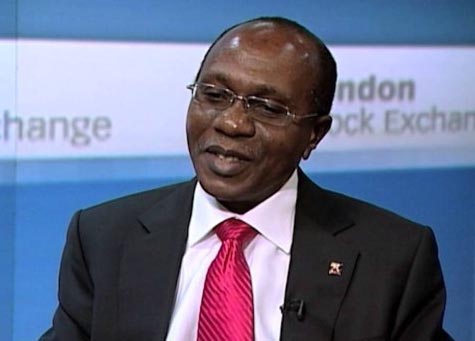
Sanwo-Olu Calls For Stronger PPP
The Governor of the Central Bank of Nigeria (CBN), Mr. Godwin Emefiele, yesterday, said he was “cautiously optimistic” that the country would exit recession this quarter as it continues to implement interventions in the critical areas of the economy.
He, however, said the apex bank projects that Nigeria would return to positive growth in the first quarter of next year.
Emefiele, speaking at the 55th Annual Bankers Dinner of the Chartered Institute of Bankers of Nigeria in Lagos, advised financial experts to be wary about the implication of negative comments on the economy, insisting Nigerians do not need “to worry,” as the economic fundamentals remain strong.
He noted some sectors of the economy, including the Information Communication Technology (ICT), have remained resilient, despite the impact of the Coronavirus pandemic, adding that 18 sectors recorded positive growth in the third quarter, as against the 13 that contracted.
The CBN boss observed that the economy is on the path of growth and the stable growth witnessed after the 2016 recession is “a reassurance” that the economy would emerge stronger.
He said: “As we are all aware, prior to the onset of the virus in December last year, the Nigerian economy was on a positive growth trajectory, having made a significant recovery from the 2016-2017 recession, which was triggered by the drop-in commodity prices in 2016.
“Following the recession, we witnessed 12 consecutive quarters of economic expansion and GDP growth in the fourth quarter of last year stood at 2.55 per cent.
“Our exchange rate remained stable for over two years at N360/$ and our external reserve witnessed significant accretions from the sale of crude oil and continued inflows from foreign investors.
“Our banking system remained strong, as key indicators reflected improvements across several areas. The capital adequacy ratio for the banking industry was above 15 per cent, surpassing the prudential requirement. The ratio of non-performing loans declined from 11 per cent in April last year to less than 6.1 per cent by January this year.
“Our intervention efforts in the agriculture and manufacturing sectors continued to support employment generating activities and improved local production of goods that can be produced in Nigeria.”
He called for urgent diversification of the economy, so that it would not continue to sneeze every time the crude market is challenged, saying it has the potential to survive without oil.
Speaking on the current escalating inflation, Emefiele said more effort would be paid to the supply side of the economy, noting: “Let me add that while COVID-19 has brought on several challenges to our economy and indeed the banking sector, it offers a unique opportunity for us to build a more resilient economy that is better able to contain external shocks, whilst supporting growth and wealth creation in key sectors of our economy.
“Proactive steps on the part of stakeholders in the banking and financial system in supporting the growth of sectors, such as agriculture, ICT and infrastructure, will strengthen our ability to deal with the challenges that have been brought on by COVID-19, while enabling the growth of our economy in general.”
Also speaking, Lagos State Governor Babajide Sanwo-Olu acknowledged the impacts of COVID-19 on the economy, adding that “stronger collaboration” between the private and the public sector is necessary to survive the pandemic and build a stronger economy.
END

Be the first to comment